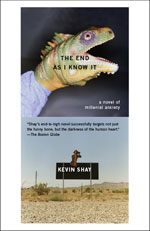Y2K Glossary
M-R
Milne, Paul
A former commodities broker who moved his family from New York City to a farm in rural Virginia long before Y2K, in anticipation of TEOTWAWKI. One of comp.software.year-2000’s most prolific, impassioned, and pessimistic participants. You’ll often find his surname used as shorthand for an extremely bad Y2K outcome, as in “I don’t expect a Milne scenario, but...”
mission-critical
An adjective applied to software or hardware whose proper functioning is essential to the continued operation of an organization. This distinction could be used to prioritize and triage Y2K remediation efforts. For example, a bank’s database of customer transactions is mission-critical, while the database that tracks its distribution of free pens and dog treats isn’t.
North, Gary
The Y2K movement’s preeminent doomsayer, and arguably the originator of the notion that this computer problem might have widespread and frightening consequences. Starting in 1997, he posted Y2K-related articles and links daily on his site garynorth.com, and in his accompanying commentary interpreted every piece of news to spell disaster. A prominent Christian Reconstructionist and the son-in-law of R.J. Rushdoony, he had been predicting inevitable economic collapse from one cause or another—the Cold War, AIDS, computer viruses—since at least the 1980s (a fact he did not advertise in his Y2K writings).
off the grid
A lifestyle in which, to a greater or lesser extent, one does not depend on public utilities, government services, or banks. Can be used to mean anything from generating your own electricity to having your identity and whereabouts unknown to any corporation or government agency.
Pareto’s Principle/Law/Rule (80/20 rule)
Generally, a description of the phenomenon that in many economic and other situations, 80% of the causes or inputs produce only 20% of the results or outputs. In this context, often cited in relation to the observation that in most software-development projects, the final 20% of the work takes 80% of the time. If true, this would tend to imply that Y2K remediation projects were doomed to failure even if they were well underway already.
polly, Pollyanna
A derisive term applied by doomers to anyone who believed or implied that Y2K would not have a major harmful impact. From the children’s book and movie Pollyanna, with its eternally cheerful and optimistic young heroine.
preps
Survival preparations for Y2K, meaning both the activity of preparing (“We’re continuing our preps”) and the physical goods and household infrastructure thus acquired (“Don’t eat your preps without replenishing them”).
reinfect, reinfection
The theory that even if a given computerized system was Y2K-compliant, imported data from non-compliant systems it communicates with could introduce Y2K bugs into it anyway.
